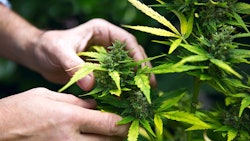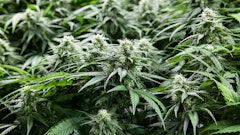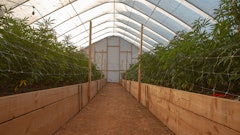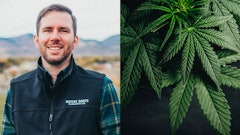
The New Mexico Senate Judiciary Committee has voted 6-4 to table a bill that would have legalized adult-use cannabis in the state.
The bill’s supporters told the Albuquerque Journal that after the committee’s Feb. 12 vote, the legislation is likely dead for this year’s 30-day legislative session, which ends next week.
“We’d have no chance of getting it through now,” Sen. Gerald Ortiz y Pino (D-Albuquerque) told the news outlet. “This is a setback, but I think in the long run it will produce a better bill.”
Ortiz y Pino introduced NM S.B. 115 Jan. 16, and Gov. Michelle Lujan Grisham seemed eager to sign a legalization bill this year after announcing that she was officially adding cannabis legalization to the state’s 2020 legislative agenda.
RELATED: New Mexico Lawmakers Introduce Legislation to Legalize Adult-Use Cannabis
NM S.B. 115 overcame a key hurdle Jan. 28 when it cleared the Senate Public Affairs Committee in a 4-3 vote, but its fate in the Judiciary Committee was always a bit more uncertain. Committee Chairman Sen. Joseph Cervantes (D-Las Cruces) has expressed concerns in the past about adult-use legalization in the state, and questioned provisions in this particular bill, including one that would give labor unions a role in deciding who would be awarded cannabis dispensary licenses, the Albuquerque Journal reported.
“I am disappointed but not deterred by tonight’s committee motion,” Lujan Grisham said in a public statement following the Judiciary Committee’s vote. “The door remains open. We will keep working to get it done. And ultimately, we will deliver thousands of careers for New Mexicans in a new and clean and exciting industry, a key new component of a diversifying economy."
Emily Kaltenbach, New Mexico state director for the Drug Policy Alliance, echoed this sentiment.
"We are very disappointed that a bill that would have done the right thing for New Mexicans—an overwhelming majority of which support marijuana legalization—was tabled," she said in a public statement. "As a result, the communities that have been most impacted by prohibition will continue to be left out in the cold, along with those that could have benefited from the investment made in substance use disorder treatment and education, not to mention the boost this would have provided to New Mexico’s economy. This fight is far from over, but it’s unfortunate that New Mexicans will have to continue to wait."
























